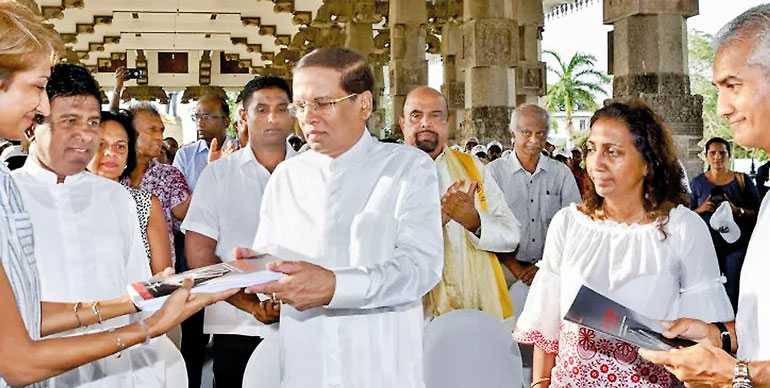Friday Feb 20, 2026
Friday Feb 20, 2026
Tuesday, 2 October 2018 00:26 - - {{hitsCtrl.values.hits}}

‘End Child Cruelty’, a new organisation aimed at ending corporal punishment of children in schools and beyond by 2020, organised a walk under the theme ‘Walk for a Genuine Change’ from Independence Square in Colombo on Sunday.
President Maithripala Sirisena joined the walk as the Chief Guest.
Based on the negative impacts of child cruelty on children and their future globally, 131 countries, including Sri Lanka, have taken measures against corporal punishment in schools.
Despite adequate laws against the cruel form of punishment in schools, and studies showing its negative impact on children’s future psychological well-being, corporal punishment continues in Sri Lankan schools, due to the cultural acceptance of physical punishment as the norm to discipline children.
Research have shown that the stress of punishment adversely affects children during their adolescence, leading to aggressive and even worrisome behaviour, as well as ragging in the universities.
According to Circular No. 12 of 2016 - Safeguarding Discipline in Schools, physical punishment in schools has been banned. The circular also lists alternative measures to replace corporal punishment. The End Child Cruelty organisation, taking into consideration all factors, organised the walk to raise awareness among parents, educators, and authorities that corporal punishment is not an acceptable mode of punishment, which does more damage to children when they enter society as adults. Otara Gunawardena of End Child Cruelty handed over a communication with a five-point resolution and 3000 signatures in favour of ending corporal punishment in Sri Lanka to President Maithripala Sirisena.
Higher Education Minister Wijeyadasa Rajapakshe, President of the End Child Cruelty Organisation Dr. Thush Wickramanayake, Dr. Tara De Mel, intellectuals and professionals also participated in the event.